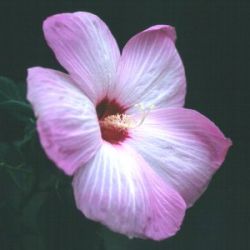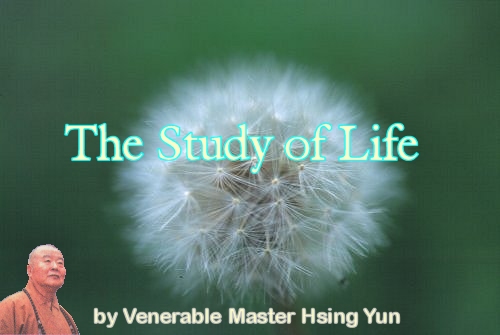|
Life is a profound study that is difficult to understand. Even though
human knowledge has become richer by the day, so much about life is
not known. How large is life? How long can life really last? What is
the color of life? What is the essence of life? It is indeed difficult
for anyone to truly know.
In reality, from the Buddhist perspective of dependent origination,
life is continuous, inherited, staged, and changing. For instance, transmigration
between the six realms of existence, the evolving of lower-grade beings
and plants into higher ones, and vice versa, are all changes.
 In
Buddhism, it is often asked, "Where do we come from at birth and
where do we go after death? "It is similar to asking, "Which
comes first, the chicken or the egg?" In today's scientific advances,
there are many more questions on life, such as: In
Buddhism, it is often asked, "Where do we come from at birth and
where do we go after death? "It is similar to asking, "Which
comes first, the chicken or the egg?" In today's scientific advances,
there are many more questions on life, such as:
- Should life be cloned?
- Does cryonics really work?
- Is it moral to kill and dissect small animals for scientific research?
- Is it right to use pesticides to kill pests?
- If we were terminally ill, would it be right to end our own lives?
Would that be suicide?
- Does the family have the right to choose eu1hanasia for the patient?
- What is the difference in DNA of a saint vs. a hardcore criminal?
- When an earthworm breaks into two and both sides are wiggling, where
is its life?
- What is the intermediate body?
- Where do humans go after death?
- Do humans become ghosts after death?
- As there are endless life spans, how come we are confused and lost
from one to the next?
- What is the life of Nirvana?
- Where do saints and holy people such as the Buddha, Confucius, Jesus,
and Mohammad live after death? If they are living another life, how
tall are they? What do they eat and use? How do they live?
 Nowadays,
scientists studying life not only research human life. Geologists study
changes of the earth's crust, astronomers the universe and solar systems,
meteorologists atmospheric changes, biologists animals and plants, microbiologists
the division of cells, archeologists the remains of culture and people,
and historians the development of humanity. Nowadays,
scientists studying life not only research human life. Geologists study
changes of the earth's crust, astronomers the universe and solar systems,
meteorologists atmospheric changes, biologists animals and plants, microbiologists
the division of cells, archeologists the remains of culture and people,
and historians the development of humanity.
Though life is profound and difficult to appreciate, it actually amounts
to two topics: living and dying. Buddhism looks at the questions of
living and dying without bias, and Buddhism itself is actually the study
of living and dying. For instance, Avalokitesvera Bodhisattva relieves
all suffering and resolves the problems of living. Amitabha Buddha,
by receiving sentient beings to be reborn in his Western Pure Land,
is resolving problems of dying.
The ultimate purpose of Buddhism is liberation from life and death.
Therefore, in the study of life, we must take with much seriousness
the lesson on how to make the best use of this life and be free from
the cycle of rebirth.
|


 In
Buddhism, it is often asked, "Where do we come from at birth and
where do we go after death? "It is similar to asking, "Which
comes first, the chicken or the egg?" In today's scientific advances,
there are many more questions on life, such as:
In
Buddhism, it is often asked, "Where do we come from at birth and
where do we go after death? "It is similar to asking, "Which
comes first, the chicken or the egg?" In today's scientific advances,
there are many more questions on life, such as:  Nowadays,
scientists studying life not only research human life. Geologists study
changes of the earth's crust, astronomers the universe and solar systems,
meteorologists atmospheric changes, biologists animals and plants, microbiologists
the division of cells, archeologists the remains of culture and people,
and historians the development of humanity.
Nowadays,
scientists studying life not only research human life. Geologists study
changes of the earth's crust, astronomers the universe and solar systems,
meteorologists atmospheric changes, biologists animals and plants, microbiologists
the division of cells, archeologists the remains of culture and people,
and historians the development of humanity.